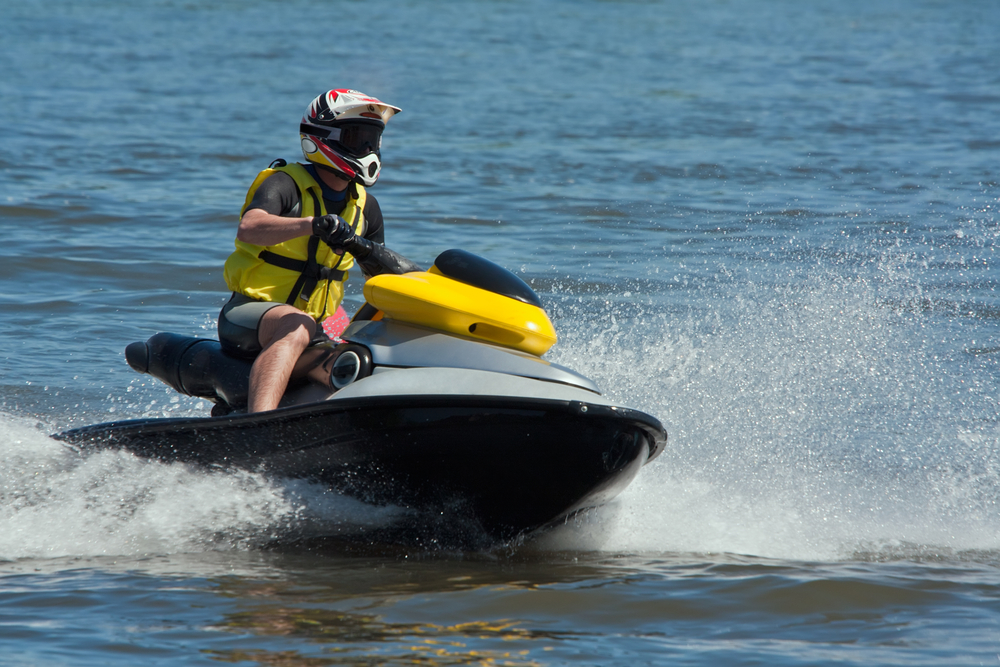Jet Ski and Personal Watercraft Injuries

Every year, thousands of people own and operate jet skis, wave runners, sea-dos, and other personal watercraft. Not unlike other recreational vehicles, personal watercraft present an often-overlooked risk of accidents and personal injuries. Indeed, jet skis and other personal watercraft are just as likely to collide, capsize, and cause accidents on waterways as motorized boats.
Like motorcycles, jet skis can hit speeds of over 70 mph, and they require significant skills to handle them safely. Therefore, drivers and passengers on these vessels are vulnerable to injuries, as are other boaters and swimmers in the water. Besides negligent operation, jet skis and other personal watercraft may be defective or have a design or manufacturing flaw that makes them more dangerous. Personal watercraft accidents may include:
- Jet skis
- Personal watercraft
- Water skiing
- Windsurfing
- Parasailing
- Kite-surfing
- Swimming
Injuries are Common
Personal watercraft operators, passengers, and involved third parties can easily be injured in accidents. The injuries may be the result of negligence on the part of the craft’s operator. Or, an operator of another vessel may cause the damages, or there may be defects with the craft itself.
Injuries sustained while using jet skis and other personal watercraft, like boating accidents, are unique in that there are no seatbelts, and the victims are out in open water. Plus, the people using these craft often participate in drinking and other unsafe behaviors while they’re operating them. These injuries are often severe or life-threatening and can cause permanent damage or disability. Some of the most common injuries sustained from jet ski pr personal watercraft accidents include:
- Spinal cord injury
- Concussion and traumatic brain injury
- Blunt force trauma
- Drowning
- Fractures and broken bones
- Cuts, lacerations, and bruises
- Torn ligaments
- In extreme cases, death
The first thing to do after an accident is to seek medical attention. Staying healthy is a top priority, and you don’t want to put off seeing a medical provider for any reason. Delaying evaluation and treatment could worsen your condition, and it can also hurt you if you have to file a lawsuit. If you don’t see a physician and follow their treatment advice, the insurance company representing the liable party may move to deny your case.
Maritime Law
Depending upon the location of a jet ski or personal watercraft accident, a personal injury claim will be governed by either federal maritime or state law. A legal professional needs to have a thorough understanding of the rights and remedies that are available under these laws to bring the matter to a favorable resolution.
Determining liability in a personal watercraft accident depends on many factors, including who hit who, who was involved in the accident, and whether or not any negligence was involved. Maritime law attorneys know this, and have the qualifications and experience to help them handle maritime cases effectively on both the trial and appellate levels. If you have been injured in an accident involving a jet ski another type of personal watercraft, you are well-advised to consult an attorney who can inform you of your options under maritime law.
